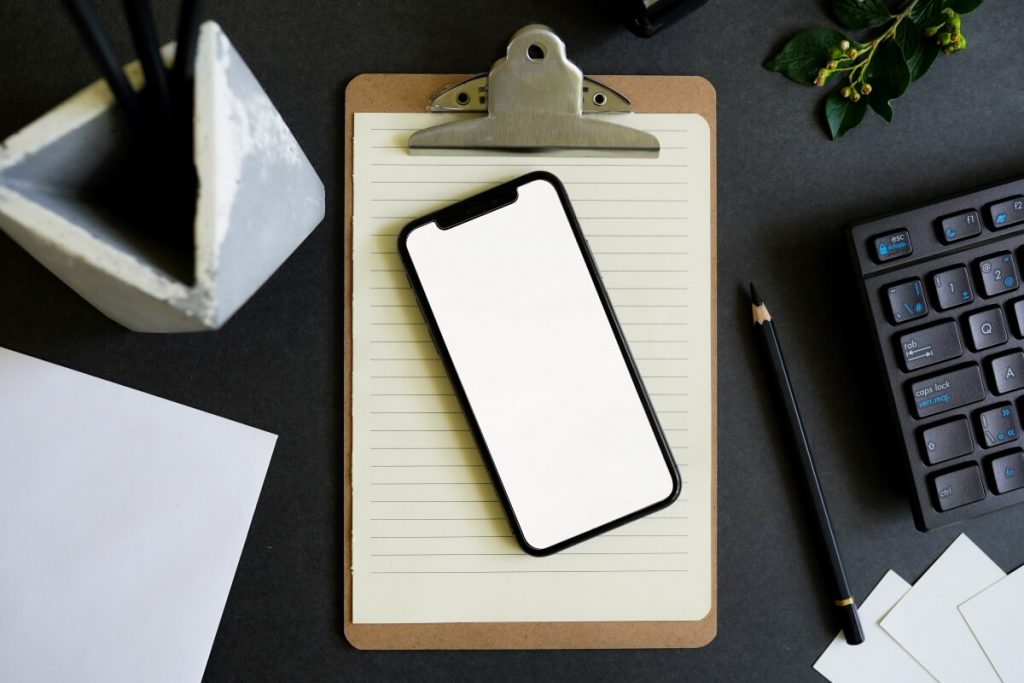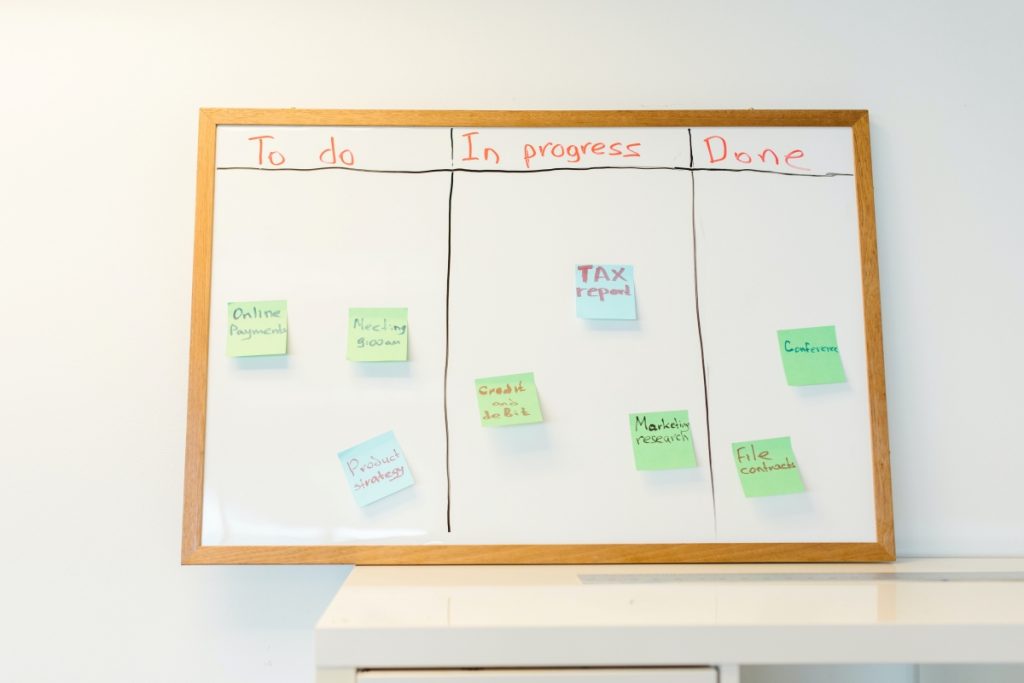- Elon Musk, Investor & Entrepreneur
Let’s face it, even the best of us succumb to distraction and procrastination. One of the hardest things to do is maintain focus when you are at work for extended periods of time. Whether that’s focus in your day-to-day life, or keeping your business or team focused on smashing their targets, there are distractions everywhere. This can lead you off course and cause you to waste time, money and effort on things that aren’t important.
To help you out, we’ve rounded up our top tips to help improve your focus at work.
Start your day right
Starting your day right can set you up for success. Create a routine that will allow you to begin your day with as little stress as possible. Start with exercise (if you can) to get your endorphins flowing and set you up to feel positive for the day ahead. Get up early so you aren’t rushing out the door feeling flustered and late for all of your meetings.

Remove distractions
Temptations are all around us and even harder to resist when we can see them. Where possible, remove or minimise your exposure to distractions. If you have loud co-workers, try getting some noise-cancelling headphones or going to a meeting room or quiet space if you need to focus on a particular task.
Food is an easy way to procrastinate. Who hasn’t reached for a snack when feeling bored at work? If you get distracted by snacks, keep them hidden away or in the kitchen. This will reduce the temptation to go for that bag of chips or chocolate bar when you should instead be drafting that report!
Even think about the temperature of your working conditions. Too hot can make you sleepy and too cold will affect your concentration.
Avoid decision fatigue
Try and limit the decisions you make during the day by planning ahead or setting a routine that will help you avoid decision fatigue. For example, organise your meals and work outfits on the weekend. Every decision we make during the day tires out a part of our brain, so if you remove the need to make smaller decisions, it will save your brain capacity to focus on making the big important ones.
Think about what you eat and drink
Something else to consider is the type of food you eat. We’ve all experienced an afternoon carb coma after having a big bowl of pasta for lunch. Certain foods can make it harder for you to focus. Stick to things like nuts or fruit which won’t leave you dozing at your desk.
While coffee can be good for keeping you awake, try to avoid having too much caffeine as it can make you jittery and lose focus. Avoid alcohol the night before important meetings or presentations too.

Take short breaks
It’s important to take short breaks when you are working as your brain isn’t designed to stay focused for long periods of time. This could be a quick walk around the block, making yourself a cup of tea, looking outside or doing some eye exercises to give your eyes a break from looking at a screen.
Put your phone away
Mobile phones are by far one of the biggest distractions at work. Even the most strong-willed can be momentarily drawn away from work by the ping of a text message coming through, or a notification that someone has commented on your latest post. Where possible, keep your phone out of sight in your handbag or in your desk drawer. That good old out of sight, out of mind certainly helps keep you from getting lost in a TikTok hole or responding to DMs when you should be trying to get that report done.
If hiding your phone away isn’t possible, turn off certain notifications so you don’t get distracted. There are also plenty of functions and apps which can help you use your phone less. Things like screentime can help you monitor your usage and restrict access to certain apps at certain times. You can also download apps which are designed to stop you from unlocking your phone to help you stay focused on particular tasks.

Do single-tasking instead of multi-tasking
While we all think we can multitask, realistically, only around 2% of the population actually can. What this means is that while you think you might be saving time by doing multiple things at once, in reality, you are actually not only taking longer, but probably not doing a good job of any of your tasks. By single-tasking, you can move more efficiently through your tasks and your day. Your tasks are more likely to be completed to a higher standard too.
Keep a to-do list
Writing a to-do list at the beginning of each day or in the evening for the next day will help keep you focused.
Make sure you stay realistic with your list. It’s all well and good to write a long list of everything you plan to do, but it’s easy to get demotivated if you never tick anything off. Calculate how long you think things will actually take and base your day on that, leaving room for things that will inevitably pop-up.
Where possible, split your day between deep and shallow work. Block out time to really focus on deep work with no distractions. This allows you to really focus on tasks that require significant brainpower and make progress on key projects when your mind is at its peak.

Don’t let your inbox rule your day
Emails are one of the biggest distractions throughout the day. Think of responding to emails as completing someone else’s to-do list. Where possible, limit the times you check your emails. Check them after you have done your most important tasks to ensure you can tick at least one thing off your to-do list before you get bogged down.
Limit meetings
Long or pointless meetings can really derail your day. Don’t have a meeting if something can be covered in an email or a quick phone call, especially if there is travel time involved. If you are having a meeting, make sure there is a clear agenda. Where possible, keep mobile phones and laptops (unless someone is taking notes) away.
Set milestones
Procrastination is one of the main things that stop us from completing all the things we need to do sooner rather than later. Sometimes it helps if you set “fake milestones” that help you get things done quicker. For example, internal meetings can be good. One of the biggest things that drive us as humans is not letting down other people. If you commit to running through a presentation or report with someone internally before it has to go to a client, this can force you to do it when you otherwise may have left it to the last minute.
Be present
It’s easy to worry about the past or things that might never happen in the future. Instead, make sure you focus on being present and in the moment. This can help reduce anxiety and stress as you are then working on things you can control, rather than worrying about things that may never happen.
If you are struggling to be present, practice mindfulness and mediation to help you keep focused when your mind starts to wander. Keep in mind, this practice can be very difficult, particularly as we are exposed to so many things during the day which can distract us from the task at hand or even trying to be present.

Have a goodnight’s sleep
Having a good sleep is crucial so make sure you are getting at least 8 hours. If you are struggling to sleep, try limiting your phone use at night. The blue light can make it harder to fall asleep, and if you are working or watching shows until late, this can make it hard for your brain to switch off, meaning you may lie awake for hours.
Nick
Latest articles
Stay up to date
Want to know anything else?
We’re an open book so hit us up if we’ve missed anything here or if there’s something else you’d like to know.
Thought leaders & celebrities share their tactics for success on the Lisnic podcast by Lisa Teh & Nick Bell